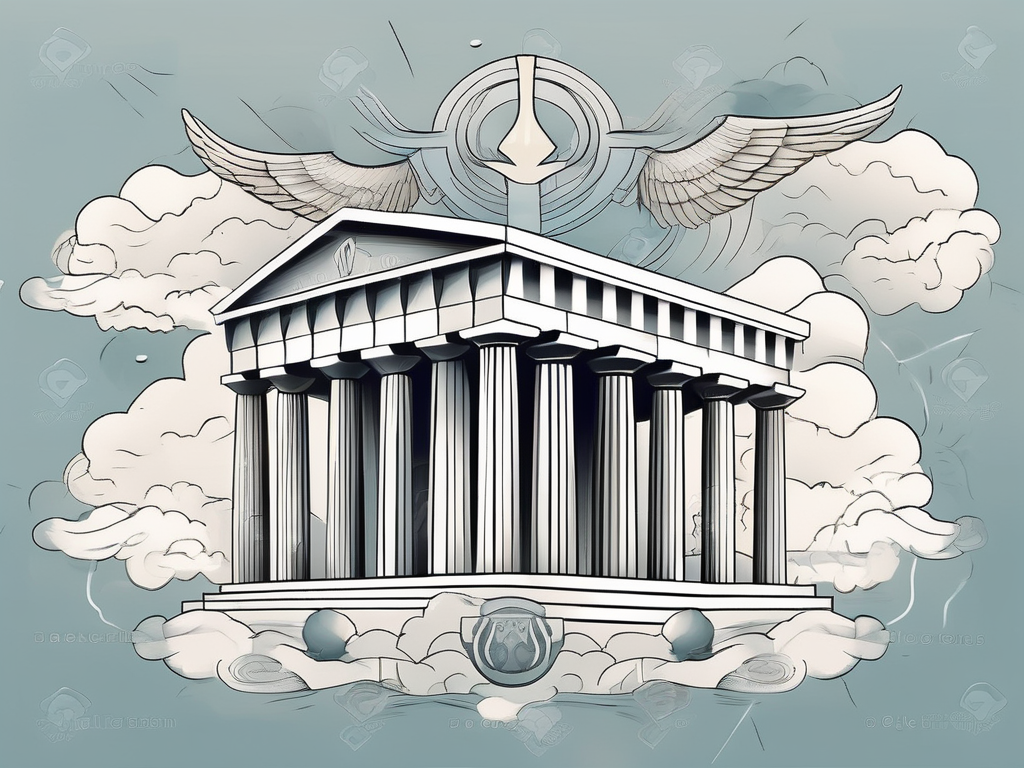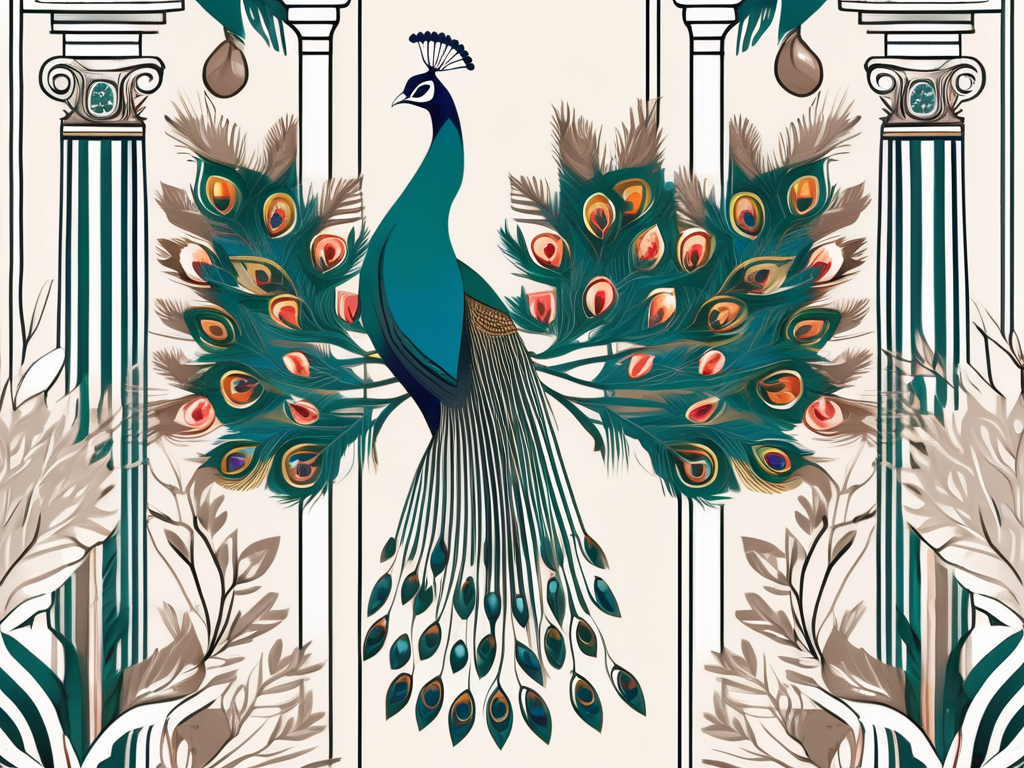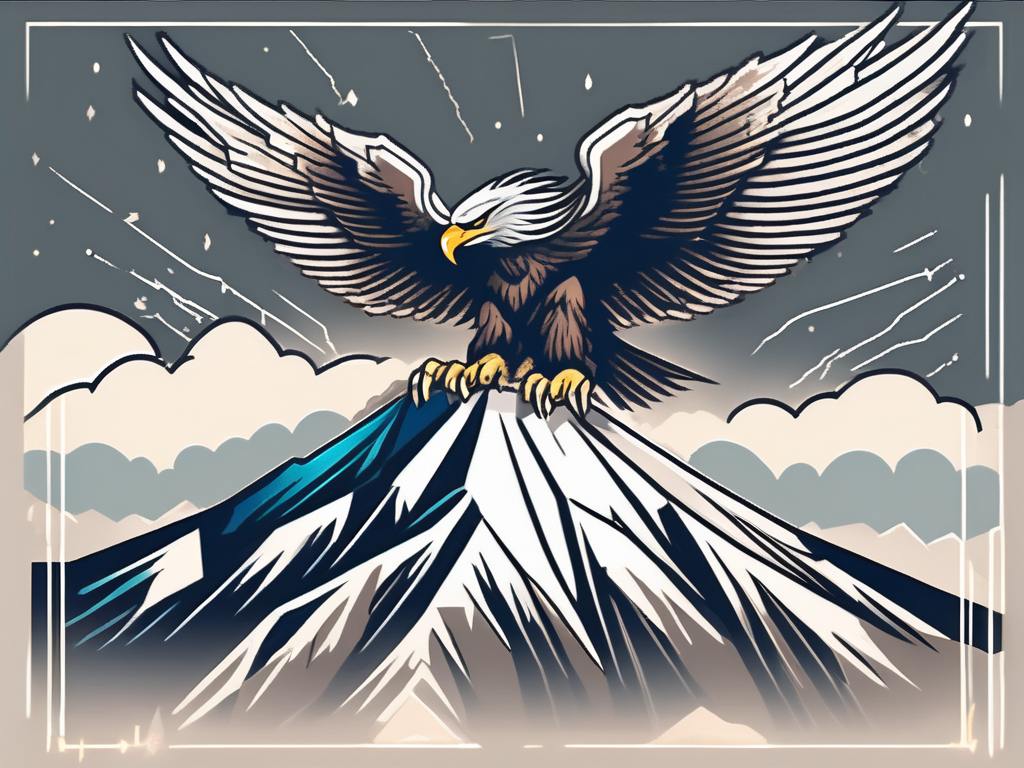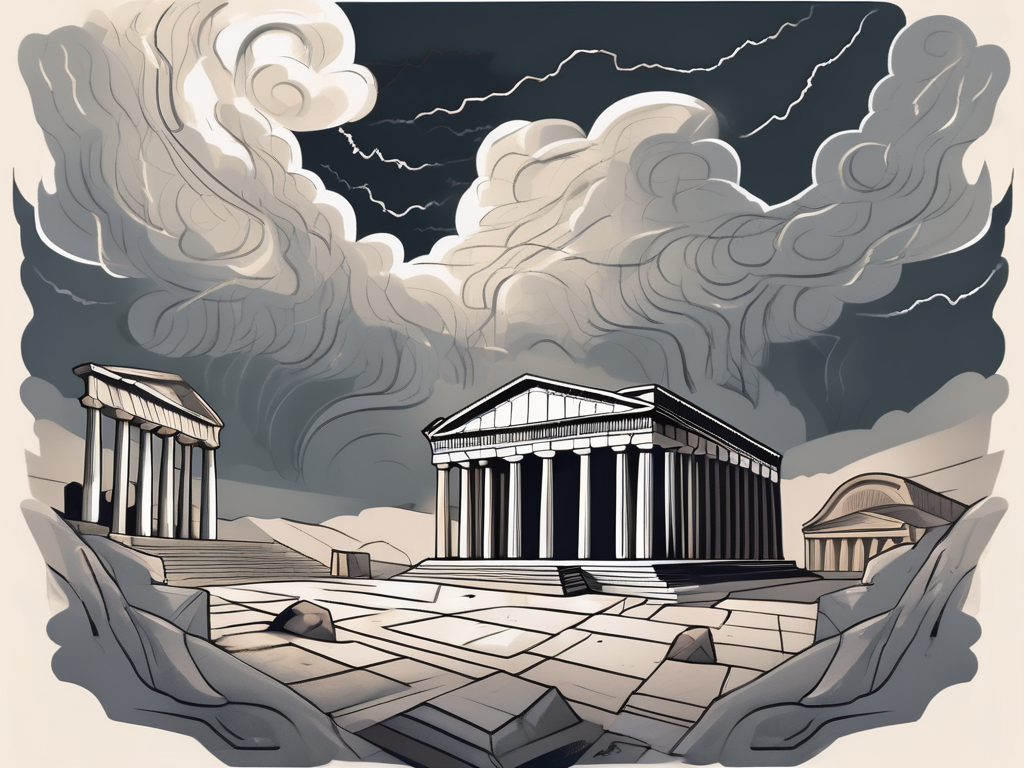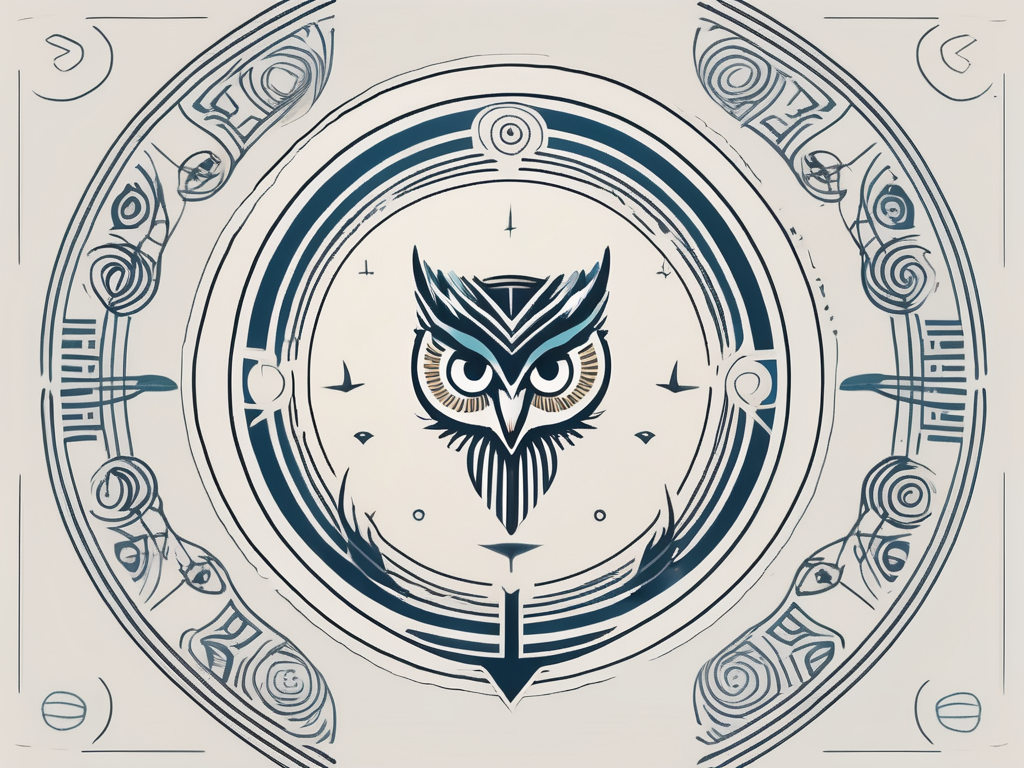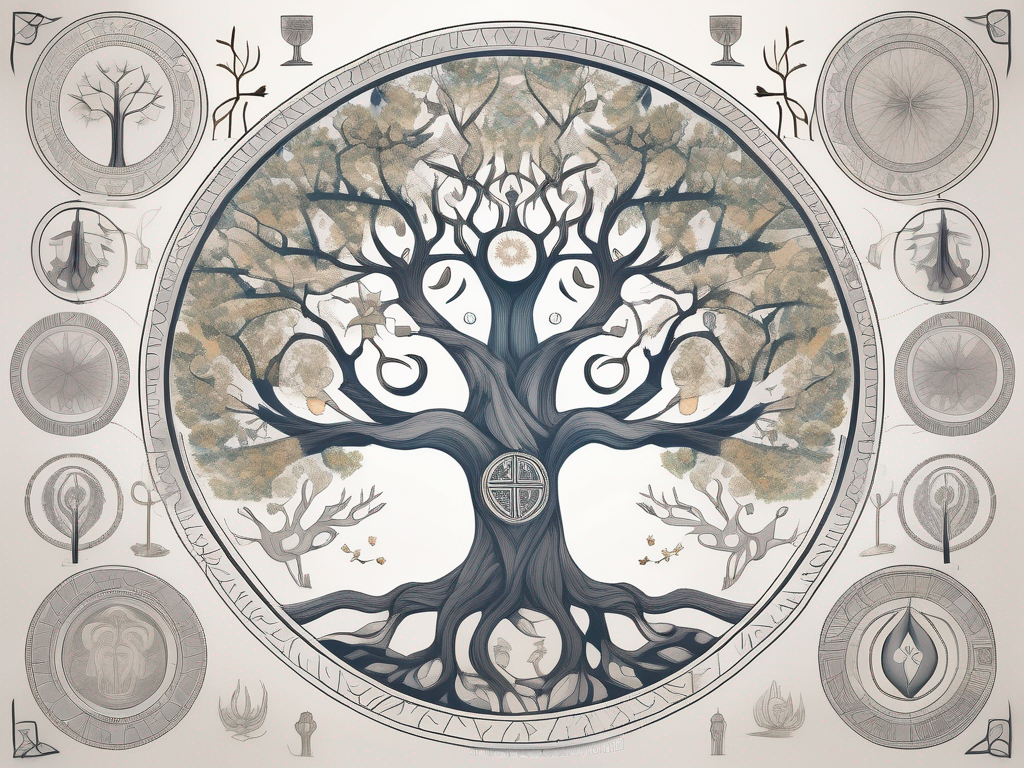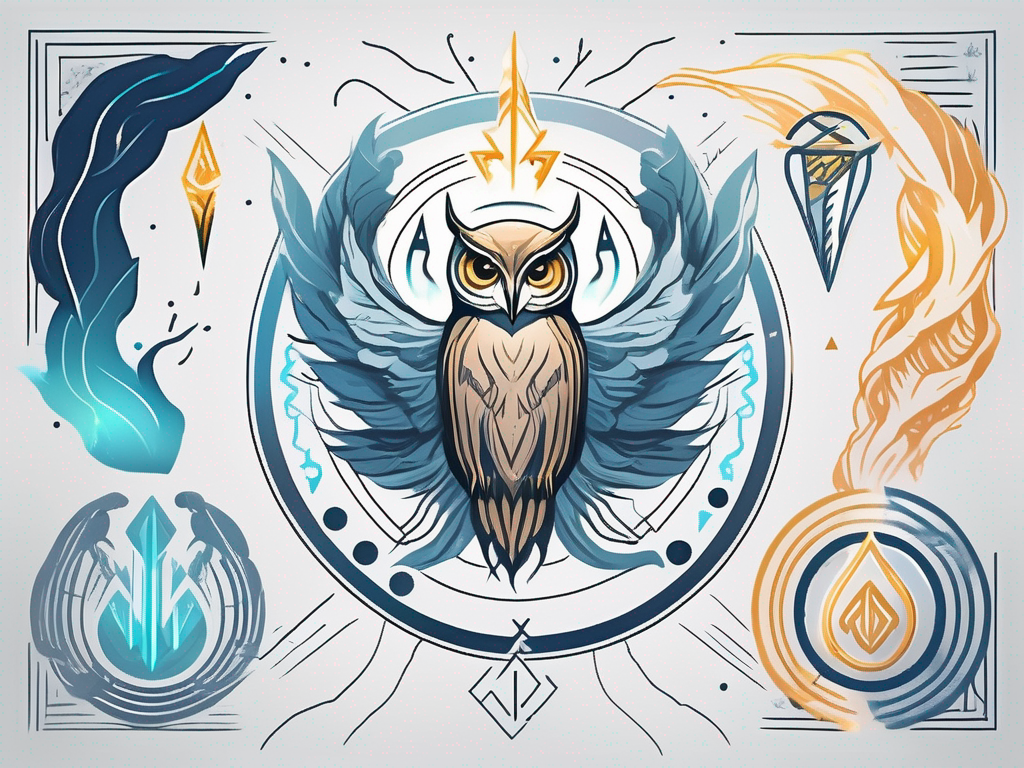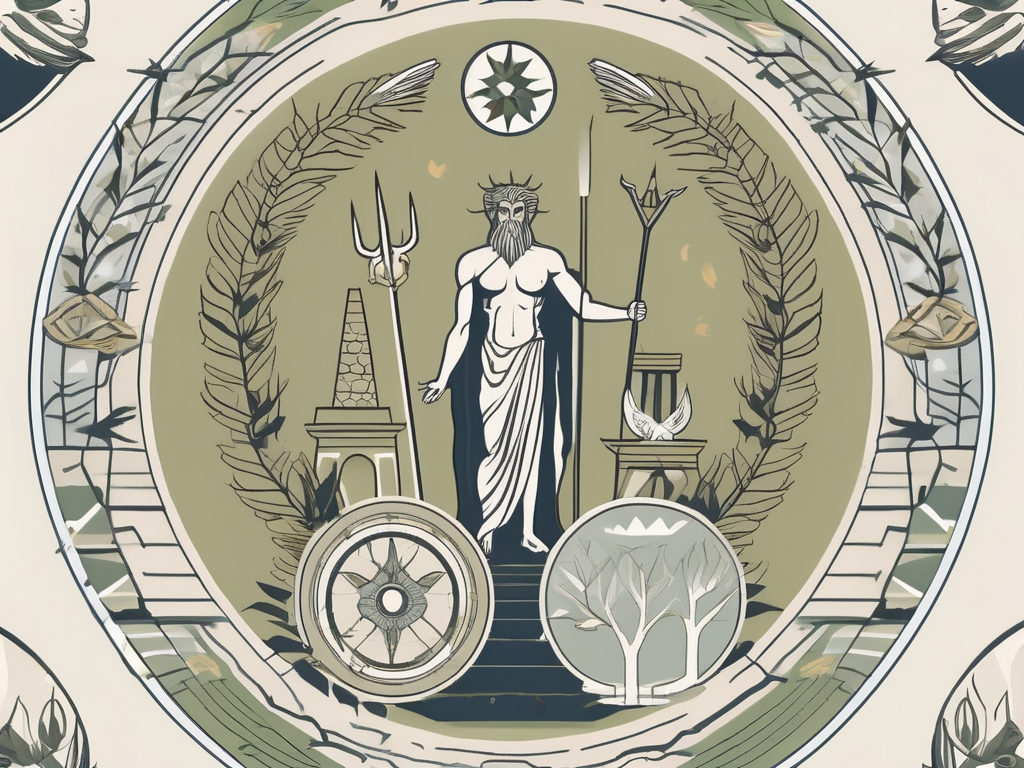Greek mythology is filled with an array of captivating gods and goddesses. While many of us are familiar with Zeus, Hera, Poseidon, and the like, there exists a fascinating realm of lesser-known deities that often go unnoticed. These minor gods and goddesses, though not as widely celebrated as their major counterparts, deserve recognition for their significant roles and unique qualities. In this article, we will embark on a journey to uncover the mysteries and stories behind these lesser-known Greek gods, shedding light on a realm that often remains in the shadows.
Understanding the Hierarchy of Greek Gods
Before delving into the realm of lesser-known Greek gods, it is essential to grasp the hierarchical structure of the pantheon. At the pinnacle stand the major gods, commanding immense power and authority. These well-known figures, including Zeus, Poseidon, and Athena, reign supreme and govern over various aspects of life and nature. Although the focus of this article lies primarily on the minor deities, a brief overview of these major gods sets the stage for understanding their lesser-known counterparts.
The major gods encompass a diverse range of realms and responsibilities. Zeus, the king of the gods, governs the sky and lightning. His thunderous voice echoes through the heavens, and his mighty lightning bolts strike fear into the hearts of mortals. Poseidon, his brother, wields dominion over the seas. With his trident in hand, he can summon mighty waves and unleash devastating storms upon those who dare to challenge his authority. Athena, the wise and fierce goddess, presides over wisdom and warfare. She is a strategic mastermind, guiding heroes in battle and imparting her wisdom to those who seek it.
Each major deity possesses distinct characteristics and plays a crucial role within Greek mythology, often featuring prominently in epic tales and heroic legends. Zeus, with his commanding presence and regal demeanor, is a symbol of power and leadership. Poseidon, with his unpredictable nature and tempestuous personality, represents the untamed forces of the sea. Athena, with her wisdom and strategic prowess, embodies the intellectual and martial aspects of ancient Greek civilization.
The Role and Importance of Minor Deities
While the major gods are widely recognized, the minor deities occupy a realm that is equally significant. These lesser-known divinities personify various natural elements, conditions, and emotions, enriching the depth and complexity of Greek mythology. They are the guardians of the forests, the rivers, and the mountains. They are the embodiment of love, beauty, and fertility. They are the spirits that bring good fortune or misfortune, depending on their whims.
Among the minor deities, there is Dionysus, the god of wine and revelry. He is often depicted with a crown of grapevines and a goblet in hand, spreading joy and ecstasy wherever he goes. Artemis, the goddess of the hunt and the moon, is a skilled archer and protector of the wilderness. Her arrows never miss their mark, and she is revered by hunters and nature enthusiasts alike.
These minor deities may not have the same level of power and influence as their major counterparts, but they exert considerable influence over human lives, nature, and the events that shape the world. They are the unseen forces that guide the course of a sailor’s journey, the gentle breeze that caresses a lover’s cheek, and the whisper in the wind that carries a secret from one ear to another.
Understanding the hierarchy of Greek gods is not merely an exercise in categorization, but a journey into the rich tapestry of human imagination and the intricate web of divine relationships. It is a glimpse into a world where gods and mortals intertwine, where the whims of the divine can shape destinies and alter the course of history. So, as we explore the lesser-known Greek gods, let us not forget the majesty and power of the major gods who paved the way for their existence.
The Pantheon of Lesser-Known Greek Gods
Within the realm of minor deities, three fascinating groups stand out: the Daimones, the Nymphs, and the Potamoi. These divine entities, often overlooked, possess captivating characteristics and play pivotal roles in Greek mythology. Their influence, while subtle, has far-reaching effects on human experiences and the natural world.
The Daimones: Spirits of Human Conditions
The Daimones personify various conditions, emotions, and states of being encountered by humans. From Eris, the goddess of strife and discord, to Hypnos, the god of sleep, these minor deities embody the diverse range of human experiences. Although often overlooked, the Daimones shape narratives and influence events, demonstrating their integral role in the grand tapestry of Greek mythology.
One lesser-known Daimon is Apate, the goddess of deceit. Apate is responsible for the cunning and trickery that often permeate human interactions. She weaves her web of lies, causing chaos and confusion among mortals and gods alike. Apate’s influence can be seen in various mythological tales, where her deceptive nature leads to unforeseen consequences and dramatic plot twists.
Another intriguing Daimon is Philotes, the goddess of friendship and affection. Philotes embodies the deep connections and bonds that form between individuals. She is often depicted as a gentle and caring deity, fostering harmonious relationships and promoting unity among mortals. Philotes’ presence can be felt in stories of loyalty and camaraderie, where her influence strengthens alliances and brings people together.
The Nymphs: Nature’s Divine Servants
Living in trees, mountains, and meadows, the Nymphs represent the spirits of nature. These deities, with their charm and serenity, captivated the hearts of both mortals and gods. From the beautiful Naiads who resided in freshwater springs to the elusive Dryads that inhabited forests, the Nymphs played vital roles in various mythological tales, nurturing the harmony between humans and the natural world.
One group of Nymphs worth mentioning is the Oreads, the mountain nymphs. These ethereal beings dwell among the peaks, their laughter echoing through the valleys. Oreads are known for their love of adventure and their connection to the rugged beauty of the mountains. They are often depicted as graceful and agile, guiding travelers through treacherous terrain and offering protection from harm.
Another group of Nymphs, the Nereids, are sea nymphs who reside in the depths of the ocean. These enchanting beings are associated with the vastness and power of the sea. Nereids are often portrayed as graceful and alluring, their voices carrying through the crashing waves. They are known to assist sailors in times of need, guiding ships safely through tumultuous waters and providing solace during long voyages.
The Potamoi: River Gods and Their Influence
The Potamoi, ancient Greek river gods, symbolize the numerous rivers that flow through the land. These deities, often depicted as bearded men with water vessels, embody the forces that shape the natural landscape. With their ever-flowing streams, the Potamoi have inspired myths, shaped geography, and influenced the lives of mortals and gods alike.
One notable Potamoi is Achelous, the god of the largest river in Greece. Achelous is often depicted as a bull-headed deity, representing the raw power and strength of the river. He is associated with fertility and abundance, as the waters of his river nourish the surrounding lands. Achelous is a central figure in various mythological tales, where his presence brings prosperity and vitality to the people and creatures that depend on his waters.
Another significant Potamoi is Alpheus, the god of the river that flows through the Peloponnese. Alpheus is often portrayed as a handsome and youthful deity, embodying the purity and clarity of his waters. He is associated with love and transformation, as his river is said to have played a role in the mythological love story of Alpheus and the nymph Arethusa. This tale showcases the power of the Potamoi to shape destinies and create enduring legends.
The Influence of Minor Deities in Greek Mythology
While the major gods undeniably take center stage in Greek mythology, the minor deities play crucial roles in shaping narratives and bestowing meaning upon human existence. Their influence, albeit subtle, weaves a rich tapestry of tales, offering valuable insights into the human condition and the natural world.
The Role of Minor Gods in Mythological Tales
Within epic tales and mythological narratives, minor gods often intervene to guide or hinder the progress of mortal heroes. Their actions, though on a smaller scale, bear significance in shaping destinies, imparting valuable lessons, and highlighting the intricate relationship between mortals and deities.
The Worship and Rituals Associated with Minor Deities
In ancient Greece, worship of minor deities was not uncommon. Devotees recognized the importance of these lesser-known gods and sought their favor through rituals, sacrifices, and prayers. These acts of reverence demonstrated the belief that even the seemingly insignificant divine beings possessed the ability to impact and shape mortal lives.
The Legacy of Lesser-Known Greek Gods
The influence of Greek mythology, including the lesser-known deities, extends far beyond the ancient world. Even in modern times, these captivating tales continue to captivate and inspire, permeating various forms of art, literature, and popular culture.
The Impact of Minor Deities on Modern Culture
From literature to film and even video games, the lesser-known Greek gods and their stories serve as a wellspring of inspiration. Countless authors, filmmakers, and artists draw upon the rich tapestry of Greek mythology, exploring the realms of minor deities to infuse their works with depth, symbolism, and intrigue.
The Enduring Fascination with Greek Mythology
The enduring fascination with Greek mythology, including its lesser-known gods, is a testament to the timeless allure embedded within these ancient tales. Whether it be the trials of mortal heroes guided by minor deities or the intricate webs spun by divine forces, Greek mythology continues to captivate the human imagination, reminding us of the profound connection between gods and mortals.
In conclusion, exploring the realm of lesser-known Greek gods unveils a tapestry of divine beings whose significance should not be overlooked. These minor deities, despite their obscurity, enrich Greek mythology with their unique qualities and tales. From the diverse creatures of the Nymphs to the personified human conditions of the Daimones, and the mighty river gods, the Potamoi, these lesser-known deities shape narratives, inspire worship, and continue to captivate our modern imagination. So, next time you delve into the world of Greek mythology, remember the remarkable contributions of these overlooked gods, for they hold the wisdom and wonders that lie beyond the confines of Mount Olympus.
